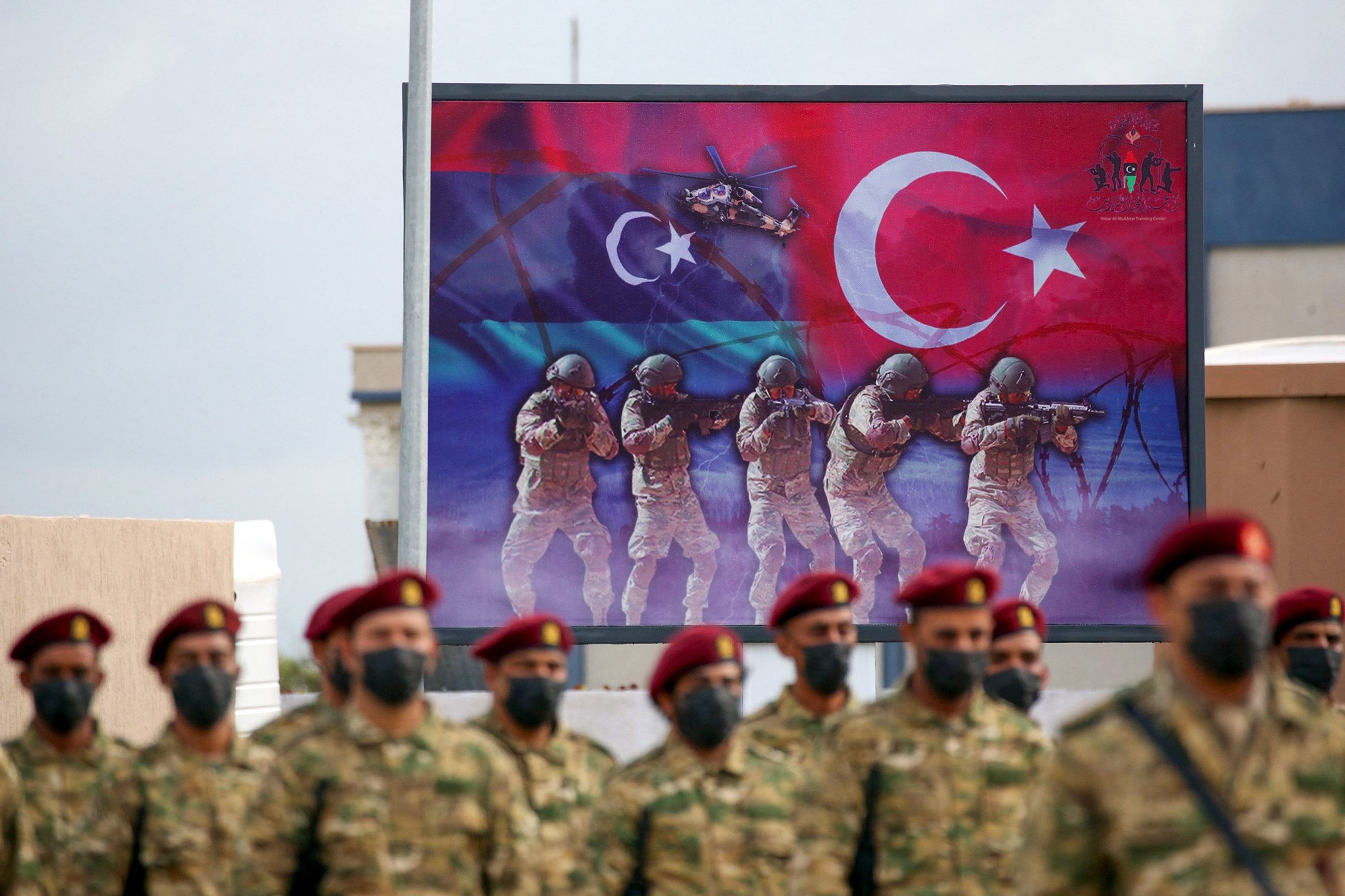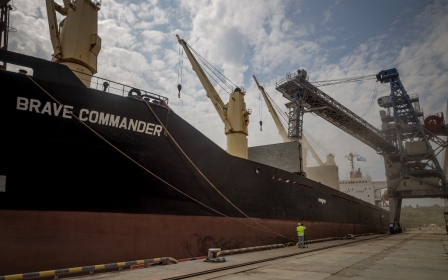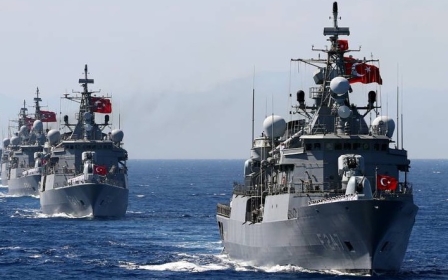Turkey blames Egypt for halting normalisation over Libya energy deal

Turkish Foreign Minister Mevlut Cavusoglu said on Wednesday that Egypt was using Ankara’s energy exploration deal with Libya's UN-recognised government as a reason to slow down the fragile normalisation process between their two countries.
"We aren’t the responsible party for the slow pace of the reconciliation talks," Cavusoglu said while participating in a panel in Ankara. "We are sincere in trying to normalise relations with them. But as they say, it takes two to tango.”
Cavusoglu added that the deal was in Egypt's interests, and that Cairo must see Turkish-Libyan cooperation as a positive.
Turkey signed a comprehensive energy deal with Libya’s UN-recognised Government of National Unity (GNU) earlier this month for land and sea exploration. The move was interpreted as Ankara throwing its weight behind Prime Minister Abdul Hamid Dbeibah, whose legitimacy is questioned by the Libyan parliament, known as the House of Representatives.
This is a sticking point for Egypt, which believes that Dbeibah’s mandate expired when the House of Representatives elected Fathi Bashagha as Libya's new prime minister in February. Dbeibah has refused to give up his post until a general election is held.
Turkish officials say Dbeibah’s government is still recognised by the UN, and that Egypt itself has signed dozens of deals with the same administration.
Ankara also says that Turkey’s maritime delimitation deal with Libya gives Egypt a bigger economic exclusive zone than its deal with Greece.
On Friday, Egyptian Foreign Minister Sameh Shoukry told Al Arabiya that dialogue with Ankara had stopped because Turkey wasn’t adjusting its policy on Libya.
“We don’t see any issue with Egypt," Cavusoglu said on Wednesday. "We frequently talk to my colleague Shoukry on regional and bilateral issues, trying to coordinate them."
The real dealbreaker
Turkish officials see the Libya issue as a stepping stone for reconciliation talks with Egypt, which begun officially in May 2021.
But people familiar with the matter believe the real dealbreaker between the two countries remains whether Turkish President Recep Tayyip Erdogan will meet his Egyptian counterpart Abdel Fattah el-Sisi and recognise him as the legitimate president.
Turkey and Egypt have been seeking to mend relations that were fractured after Ankara refused to recognise Sisi as the country's legitimate leader following the 2013 military coup that ousted his predecessor Mohamed Morsi, the country's first democratically elected president.
Erdogan has also been a vocal critic of Sisi's human rights abuses in a post-coup crackdown against the leaders and members of the Muslim Brotherhood.
Middle East Eye delivers independent and unrivalled coverage and analysis of the Middle East, North Africa and beyond. To learn more about republishing this content and the associated fees, please fill out this form. More about MEE can be found here.





